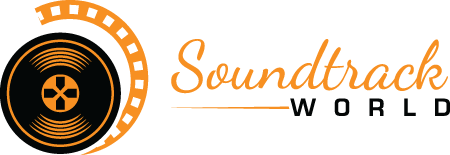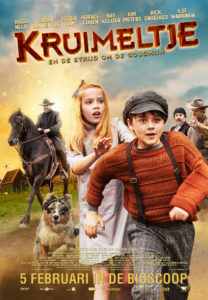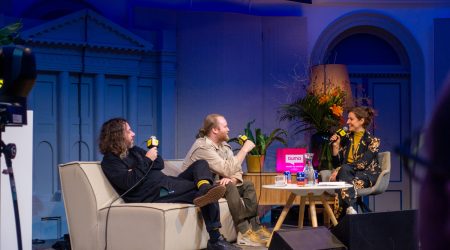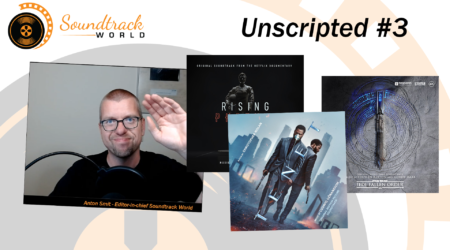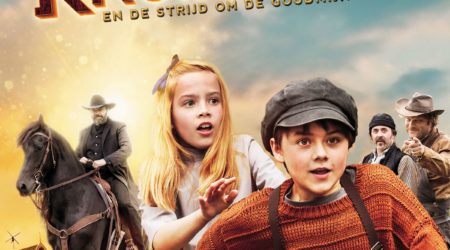This interview was conducted in Dutch. If you can read that language, I would kindly ask you to read the Dutch version instead of this English translation.
When I go to my regular movie theater, I always look at the movie posters hanging all over the place, to see if I recognize the composer. It was nice to see Joep Sporck as the composer for the long-awaited Dutch film Kruimeltje (meaning ‘Little Crumb’). I had already met Sporck several times in Poland during the Krakow Film Music Festival, where he won the prestigious FMF Young Talent Award in 2016. He currently resides in Los Angeles, the beating heart of film music. Luckily we found a moment on December 17th to talk through Skype about his career and Kruimeltje‘s music, which can be seen in Dutch theaters from February 5, 2020.
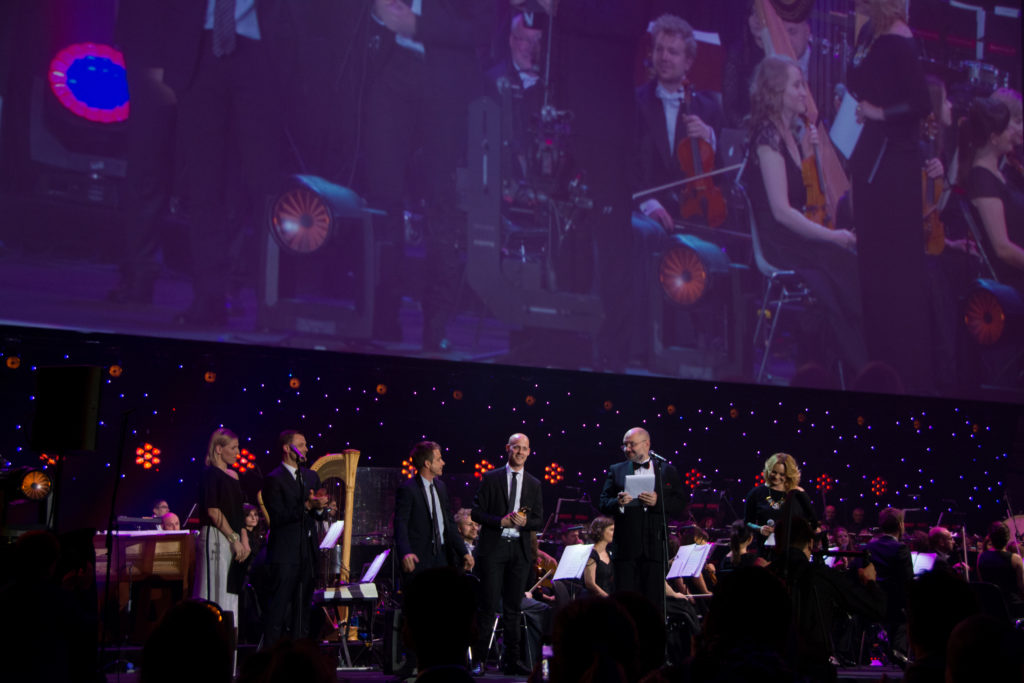
Anton Smit: Let’s start with a simple question. As a Dutchman, how did you end up in Los Angeles?
Joep Sporck: In the past ten years, while I was really active in the film and TV world in the Netherlands, things never really got off the ground. I could never really pitch on the bigger projects. At one point I came into contact with film music competitions in Poznan and Krakow in Poland. Through those I got a lot of connections in Los Angeles. That just persuaded me to go and visit America. I got to know a lot of composers there. Chad Cannon, a good friend of mine, is also a composer. I have visited him a couple of times here in Los Angeles and he just showed me around. I started doing small assignments for clients in Los Angeles. I started writing library music, and eventually also custom trailer music for larger movies, that sort of thing. In the end, it totally got out of hand because I was only working for LA clients. For ProjectSAM, the sample library company I worked for, I was working during the day, and I worked for Los Angeles in the evenings and during the night. That was really time-consuming: I was just always working. At one point it became clear that most of my work and income came from America. So I didn’t have to think about it very long. The opportunity to come here was actually present, because I already had assignments here. That was when my wife and I decided to make an effort to move from The Netherlands to Los Angeles. It took a year or two before it really worked out with the visa and the like. In the meantime, I only received more and more work. It went quite smoothly, so to speak.
AS: So what do you do mostly in America nowadays?
JS: What I mainly do for American clients is writing custom trailer music. It is my biggest activity, I made the first trailer and two TV commercials for Cats for example. They were really looking for trailer music with the existing music of Andrew LLoyd Webber and a bit of my own composition, which I then bring together. For a large part I also worked on the trailer of The Incredibles 2. With the existing movie music, in that big band movie music sound, they wanted to have a new piece of music in combination with the trailer sound. Sometimes I autonomously write compositions for trailers. That is really my biggest client here. I also assist other feature films with additional music, programming samples or orchestrations. In between I also write for Dutch productions using the connections that I already have. I don’t want to let those go, because it is nice to keep that link of course.
AS: So the music that you write for trailers is heard by a very large group of moviegoers. What does that do to you?
JS: It is weird, if you look at how many views The Incredibles 2 trailer has on YouTube, but also The Nutcracker and the Four Realms, there are millions of people hearing your music. That was already weird to realize with film music, because I came from the live-performance world. You work on a score for an intense period of time and then it goes into the theater. You don’t have to do anything after that. It plays every day, hundreds or thousands of people see it, but your work is already done. It feels really good that so many people are hearing it.
AS: Besides this trailer music and some smaller productions in the Netherlands, you have now composed the music for Kruimeltje which is a much bigger production and will be in the Dutch theatres in February. It is based on a children’s book. Before writing the music, had you already seen images or did you actually had some ideas in mind where you wanted to go musically with that movie?
JS: I had very little knowledge about Kruimeltje. I had never seen the old 1999 movie so I started by watching that movie, but the new movie has a much more contemporary sound than the old one. I pitched based on two scenes from Kruimeltje and I mainly tried to do my own thing. Orchestral, but always with a kind of link to contemporary music: a certain line, certain instrumentation. I think it is just a timeless story. The focus lies on Kruimeltje’s mischief, it’s a tale of all times. It took a while before I knew where I wanted to go, I had to sketch it out, but in the end it developed pretty quickly.
What I find very important in this kind of movie is that it contains beautiful themes and melodies. It is something I often miss in contemporary film music: daring to go for many melodies, instead of just action music or certain textures. I just really wanted to go for melodies and the story lent itself very beautifully for that. I have written themes that symbolize something, but that can be used in many ways. This came about quite naturally while sketching. I spent a week sketching all the themes, and the visuals inspired me enormously as well. I’m really very impressed with the quality of the movie.
AS: So the themes and melodies are mainly meant to emphasize ideas and characters?
JS: Sometimes to emphasize a character, there are a number of characters in this movie who have themes, but I have, for example, also written a theme for a certain emotion. We called it the loneliness theme. It has a climax in the middle of the movie and afterwards it evolves into a beautiful theme, an optimistic feeling. So from loneliness, the same melody works towards the end of the film. It’s kind of a double effect: character and emotion.
AS: When seeing this movie, what should visitors pay musical attention to?
JS: Something I just described. How the same theme can sound very sad and very optimistic afterwards, how it evolves. In the movie we also work towards a certain event, which I’m not going to spoil yet, but it has to do with the trumpet and a Western feeling. You can see that in the movie as well. You can also see that on the poster: Kruimeltje is wearing a cowboy hat and that was also an element we were aiming for musically. The Kruimeltje theme is actually more a motif than a theme, it is quite compact. It also comes back in many different ways, such as heroic and exciting but also a bit sad. I am proud of how we have been able to shape it throughout the entire movie.
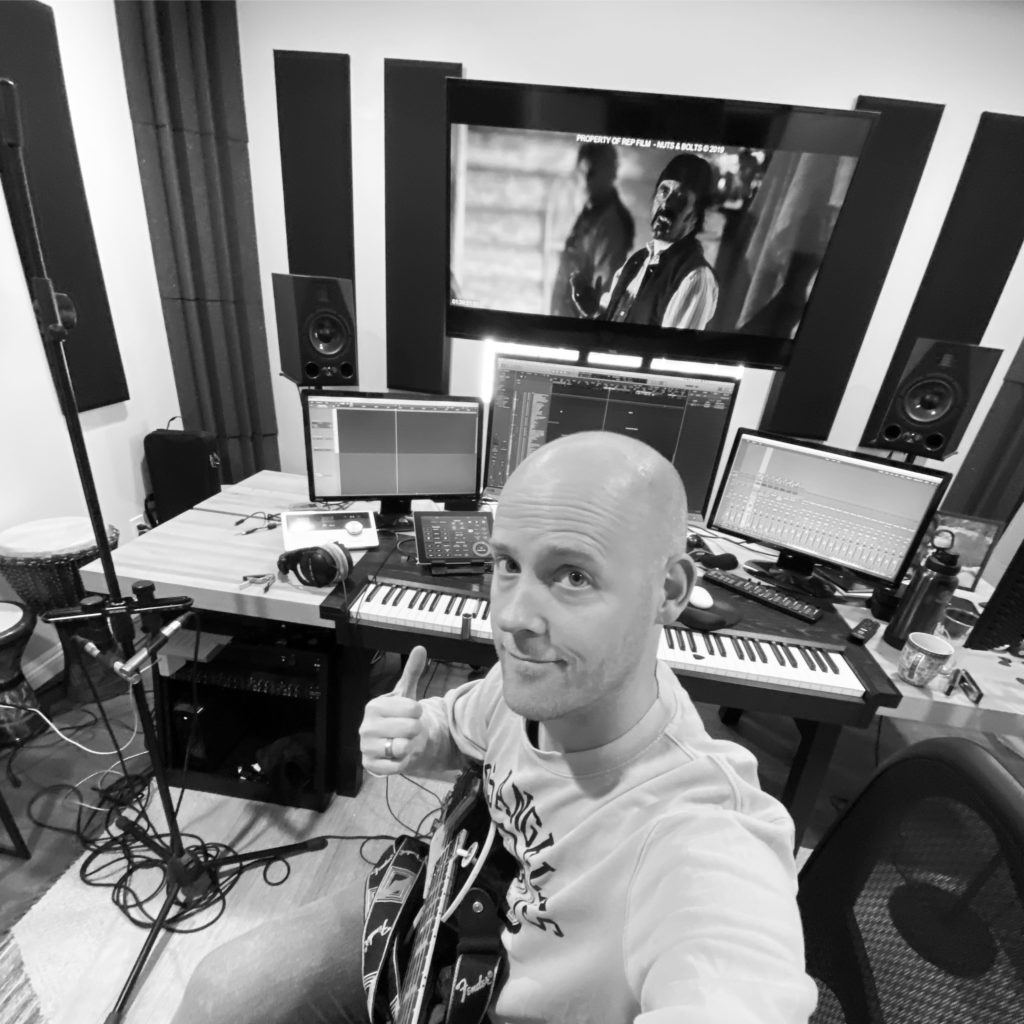
AS: So the film has elements of a Western. People always think of a certain style of music. You probably want to reference this music, but on the other hand, you probably don’t. Was this a challenge?
JS: Yes, it is a challenge. Of course I listened to Ennio, but I didn’t care too much about the production of Ennio Morricone’s music. If you listen to his music, you really recognize the musical and production signature in his mix. A lot of panning for example, which is the placement in the stereo image, of individual parts. The characteristics are very beautiful with very weird reverbs. I did want the Western-sound in terms of music, but not so much in terms of mix and production. We tried to keep it more contemporary.
AS: I have to watch that movie in the theatre together with all the kids around me. Or is it a movie that is also a fun experience for grown-ups?
JS: I have to admit, up to the last day of writing, I still had to laugh at certain scenes that were just shot and written very cleverly. I really think it is a movie for the whole family.
AS: But after seeing such a scene, do you instantly think about how you want to support it musically?
JS: Yes, that was also very funny, some things you don’t have to support at all, because they were really good by themselves. I saw the movie for the first time with a temp-track (ed: the scenes already have existing music, mostly from other movies). I also watched it once completely without one. There are a number of moments that stand out tremendously well without music and for these moments I actually already made the decision to not do too much. If you are going to emphasize things or steer things in a certain direction, then you are actually detracting from its current quality, which is a pity. I have really tried to take that into account, by sometimes working very delicately on it. Or not putting anything underneath it at all.
AS: What was it like to score a Dutch movie from America?
JS: I went to the Netherlands to meet the director, editor and sound designers and we watched the movie together. I really started working when I got back here. The godsend of time difference actually meant that I could work during the day. I sent my work in the evening, woke up and I already had feedback waiting for me. It was ready and I could continue immediately. Every now and then I would Skype with the director in my morning, his evening. It was a kind of an around-the-clock work cycle, which felt really nice. What sometimes happened in the Netherlands was that I had to wait a long time for feedback, because you would be in the same time zone. This way of working was really nice. It really worked to my advantage, because it really was a non-stop crunch for six weeks.
AS: So you didn’t miss the fact that you couldn’t have discussions with the director at any time because of the time difference?
JS: We spotted the whole movie beforehand. We discussed what we wanted with certain scenes, so I had an idea pretty quickly. Sometimes I had created something that wasn’t exactly according to his vision, but that happens often and is just part of the job. I was really lucky to be able to work with a locked version (ed: the scenes are finished and won’t be edited anymore) for six weeks, which is quite unique. It was really nice that it was done, including the timing.
AS: With that locked version, where do you start composing? You don’t have to start at the beginning of the film.
JS: I started with some very important scenes. I hadn’t written the themes yet. I started writing themes based on the visuals, so to speak. The loneliness theme is one of the important themes, which is in the middle part of the movie, there it is at its longest and most elaborate. That is what I started with, the longest and most developed version of the melody. I had already written the Kruimeltje theme for my pitch, so that was already done and I only developed it a bit further. So I did a few important scenes throughout the movie, and only after those I went to the beginning and worked my way to the end. It felt like a really nice way to handle this movie. Every project is different in that respect.
I also recorded live musicians for a day for this project. In every scene you hear live elements. I did banjo, guitar, slide guitar, mandolin, harmonica and percussion myself. I recorded a group of strings, a solo trumpet, a solo clarinet and solo French horn and my wife Sarah also sang in one of the important final scenes. So there are live elements in everything, sometimes a bit more and sometimes a bit less. The moment you choose to do live recordings means that at the point where all your scenes have been approved, you can still work on it for a week and a half. I also had help with orchestrating. I did record it here in Los Angeles so I could be present. I rather have a smaller group of musicians and more control, than recording it remotely in Eastern Europe, and the musicians are really at the top in LA and you can really hear it.
AS: Was the director present at the recordings or did he give you full confidence?
JS: He wasn’t present and he gave me full confidence, which was really amazing and very pleasant.
AS: To conclude, I wanted to ask you a few more general questions. You’re experienced in pitching for directors and you also compose things outside of film music with your trailer projects. Do you have any good tips for aspiring composers?
JS: Yes, my biggest tip, and I always say this to myself, is that you should keep going and not lose hope. This business consists mainly of being rejected. You produce a lot of work, which, for the majority, does not get selected, but you just have to keep working hard and don’t give up, and it will come. The fact that you get asked to pitch is already proof that you are good enough. If you don’t get selected, it doesn’t mean that your music is bad. It may have to do with the musical preference of a producer or director, which is something you cannot control. It is mainly a matter of really continuing to push.
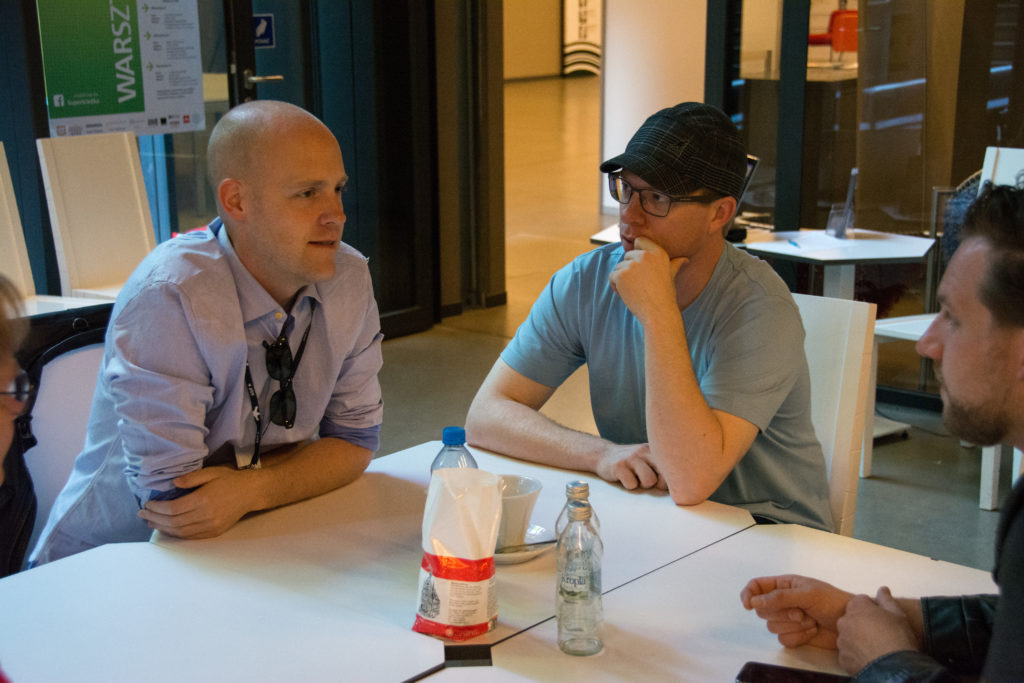
AS: You make music for trailers and music for family movies. Trailer music is completely different. Do you see that as two separate things, or do you notice the influences of one genre creeping into the other?
JS: You always have an advantage when you can do more than one thing. For example, I notice that in writing my film music my production quality from the trailer music helps me a lot to make things sound better, in terms of mixing and production. With trailer music I notice that, because I know and write a lot of film music, it really helps me with, for example, a custom trailer pitch like The Incredibles 2. I know that soundtrack inside out. I love writing melodies and you hardly hear those in trailer music and that gives me an advantage as well. For a trailer I usually have 24 hours for two and a half minutes of music. It really is a very high paced job and a very nice interaction. There is a lot of overlap between them even though they are totally different. Trailers are very ‘over the top’ and with film music you can sometimes use something tiny, to showcase something huge. I always prefer film music. You can tell a lot more and achieve a lot more with it.
AS: Final question, what does the future hold for you?
JS: For the time being, I’ll continue to live and work here in Los Angeles. There is just a lot of work for me here. I had always thought of myself as a film music composer, but I think I finally have to admit that I am a trailer and film music composer. I’m not ashamed of that. They are two very separate branches in the film music industry. I just really want to focus on them both. I would very much like to arrange a project as the main composer in America, but besides that, I definitely want to stay active on the Dutch film music market, because that is where very beautiful things are getting made. So it is still very much spread out and everything is possible. I’m already very busy enough with the trailers. I have plenty of things to do!
